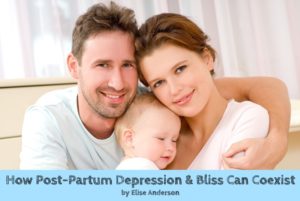by Guest Blogger | Dec 31, 2022 | Guest Posts, Parenting
“My breasts were beautiful, now they’ve been incinerated for nothing. Thank you, modern medicine.” These were Chloe Cole’s words as she testified before the Florida Board of Medicine Legislative Committee in October 2022.
Chloe shared her experience of transitioning and de-transitioning. She said, “From a young age I was actually quite a very feminine girl, though I did somewhat model myself after my older brothers.” But she began to question her identity, and at 13, was given a regimen of puberty blockers and testosterone. Two years later, she had a double mastectomy. At 16, she said, “I came to realize I severely regretted my transition.”
The issues of gender dysphoria and transitioning teens are becoming more common. A recent study showed that nearly 1 in 5 people who identify as transgender in the United States is between the ages of 13-17. Anyone who has parented or been involved in the life of a teen knows the volatility that comes with this age. There are many theories as to why there has been an increase in teens experiencing gender confusion. One study suggested the “possibility of social influences and maladaptive coping mechanisms.” In other words, it is possible that teens are identifying as transgender because they see others doing it and/or are just having difficulty handling life’s challenges.
Dr. Samuel Veissière authored an article in Psychology Today addressing some of these concerns. He encouraged parents, educators, and clinicians to proceed with caution in dealing with the phenomenon of “rapid-onset gender dysphoria” (ROGD), a term coined by Dr. Lisa Littman, a behavioral science professor at Boston University. The term rapid-onset should give pause when considering potentially harmful measures to change one’s gender, especially when considering the teenage mind. My 16-year-old son chose months before his birthday to have steak for his celebratory dinner, but the week of the event chose something else. A simple example that teens are often indecisive.
Because teens are going through such a tumultuous time, parental support is essential to helping them navigate these stormy waters. Sadly, parental rights are being taken away when counseling their children with gender dysphoria. Some courts are ruling in favor of children receiving transitioning therapy, despite parental disapproval for moral or religious reasons. Washington state recently passed legislation allowing children to receive gender transition care without parental permission.
One mother shared the pain she experienced watching her daughter go through “affirmative care,” the practice of clinicians following the child’s lead in transitioning. She pleaded for “common sense and compassion” to allow parents to advocate for their children’s health. Gender-affirming care is being touted as “life-saving“, and the “benefits outweigh the risks.” Preventing suicide is an outcome we can all agree on, but at what cost? What are the long-term effects of taking hormonal therapy or surgically altering the body? Is affirmative care addressing the root cause of the pain, anxiety, and depression these kids are feeling? Chloe Cole would tell you no.
As a mother of six children, I take my responsibility and right seriously to guide and nurture them, especially during challenging times in their lives. To instead, be left to watch a child undergo transformative therapy because a clinician feels it is in their best interest brings out the mama-bear-fight inside every mother. What can we do to protect our kids from becoming victims to those looking to override our role as advocates and protectors of our children? Let me offer three suggestions to empower parents in these roles:
- Be there for your kids! If “social influences and maladaptive coping mechanisms” are contributing to gender dysphoria, know who and what is influencing your family. Understand the pull of social media in teens’ lives. Find out what is stressing your kids. Communicate with them; ask questions. If they are struggling with anxiety or depression, help them find tools to cope, and if necessary, seek professional help.
- If seeking professional help, find clinicians that align with your values or religious beliefs and who will respect your role as a parent. Seek someone who recognizes the potential harm of gender-affirming care and will work with your family to find the root cause of the anguish your child is feeling.
- Fight to protect the rights of parents. Become educated about the political process. Develop relationships with your local and state officials. Elect those who will defend the family. Attend school board meetings and know the policies in your district that pertain to parental rights. In Idaho, parents are writing resolutions supporting the right as parents to be the primary stakeholders in their children’s education and upbringing. These resolutions are being presented to school boards and political parties, with the hope that state leaders will pass legislation defending this right.
Chloe Cole’s blunt testimony against gender-affirming care might be difficult for some to hear, but it is courageous voices like hers that can draw attention to help those with gender dysphoria get the mental health and support they need. And parents have the right to be by their child’s side guiding them through this process.
Mandy Baker is a Marriage and Family Studies major at Brigham Young University-Idaho. She is a mother and grandmother, residing in Burley, Idaho. She serves as a school board trustee in her community.
by Guest Blogger | Feb 4, 2020 | Guest Posts, Parenting

I had a beautiful baby girl, a husband who was ecstatic to be a dad, and all of my physical needs met. I should have been so happy.
But I just wanted to run.
I couldn’t be comfortable in the same room with my baby. Nursing was extremely difficult. She cried incessantly. I struggled to bond with my baby. I thought it was just the “baby blues” that most women experience within the first two weeks after delivery. But as time went on, I continued to feel despair and inadequacy.
What is PPD?
As I quickly learned, Post-partum Depression (PPD) is no joke. New motherhood is itself an emotional roller coaster, but one out of seven new mothers also experience PPD. PPD is the most common complication of childbirth and is significantly underdiagnosed. And PPD can affect any postpartum mom, regardless of race or socioeconomic status.
You may feel like the early, blissful moments you anticipated with your sweet new baby have been stolen away. That was my experience, and this is my story.
Self-Prescribed Treatment
I thought maybe I could fix it myself, but the heavy cloud of hopelessness lingered well after the “baby blues” period. I tried exercising daily to lighten my moods. I took violin lessons thinking it might bring me happiness. I tried positive thinking and expressing gratitude, but none of these tactics were very effective. I thought maybe it was something marriage and family counselling could resolve. That was unsuccessful too. I couldn’t think of anything else. I was stuck.
A Relieving Solution
Approximately three months postpartum, I realized that this “haze” might be PPD. I remembered what I learned in my birthing class about PPD – that there were resources at my obstetrician’s office to get help. I set an appointment and met with the clinic’s PPD specialist for a screening. She was so understanding and nonjudgmental as I voiced my struggle. She reassured me, prescribed me medication, and kick-started my healing.
After a few weeks of treatment, I was able to build a stronger bond with my baby. I felt more energized and motivated to take care of myself, my baby, and everything else. I was finally able to feel the joy of motherhood! I loved her all along, yes, but I now had a weight lifted off of my shoulders.
Self-Love: An Added Bonus
In the months that followed, I focused on loving myself, particularly my changed body. It’s all too easy to get caught up in society’s expectations and influences to “get your body back,” and I found myself buying into it.
I had to change my perspective, or else I would never love and accept my newly abundant stretch marks and six-inch C-section scar. It was a challenge, but ultimately, I realized that I sacrificed my body to create a human life. My imperfections are proof of it, a beautiful reminder of that miracle.
My husband often reassures me how much he loves this new version of me, which definitely helps. However, I still have to actively put forth the effort to love myself, regardless of what other people think. I need my own love more than anyone else’s (sorry to break it to you, hubby 😉). I’ve come to understand that, yes, it is essential to be comfortable in my own skin, but my worth does not derive from my appearance or the amount of space I fill.
My journey of self-love has only just begun, but it has been an important component of getting to where I am today – 13 months postpartum. I now feel capable of becoming the best version of myself because I got the treatment I needed and have been cultivating self-love.
Normalizing Postpartum Depression
Having PPD is nothing to be ashamed of. It’s simply a chemical imbalance that is treatable, thanks to modern medicine. And as I mentioned earlier, it’s something that many moms experience. So know that you are not alone! This is not your fault, nor are you to blame.
If you are struggling in the same way that I was, there is no shame in taking care of yourself. Get help! If your symptoms linger past two weeks postpartum or returns anytime within one year after delivery, consider seeking medical attention.
Treating PPD may look a little different for each person. My choice of treatment doesn’t have to be yours. So explore your options!
Why PPD Matters to Everyone
If PPD has never been your issue but you have a loved one in the postpartum period, genuinely ask them how they are doing. Be a safe person for them to talk to. Help them seek treatment if necessary.
If nothing else, I hope sharing my story will foster increased compassion and understanding for the many women who experience PPD.
You deserve happiness as much as anyone else. I’m no expert, but I truly believe that PPD and bliss can coexist, because I’m experiencing it.
Let’s normalize PPD, seek and embrace healing, and end the stigma.
Resources
The following helpline and number to text are available from Postpartum Support International to help you (or a loved one) get started in the healing journey:
Helpline: 1.800.944.4773
Textline: 503.894.9453
Elise Blaser has a Bachelor of Business Management with an emphasis in Human Resources. She has a wonderful husband, Zach, and a beautiful one-year-old daughter, Violet. Before becoming a mom, she was a Program Developer for FIELDS, a nonprofit organization for Native American education and economic development, where she created and implemented a values-based, life-skills curriculum for underserved youth. She is passionate about health and wellness and sharing her life experiences to help uplift others.
by Elizabeth Warner | Feb 27, 2018 | Advocacy, Parenting

At the Dentist’s Office
I don’t know about you, but I always feel awkward when the lady cleaning my teeth asks me questions. It normally goes a little something like this:
Dental hygienist: So, where are you from?
Me: *trying not to get that yucky toothpaste on my tongue* Uh, Rexburg.
Dental hygienist: Oh. Do you like it here?
Me: *trying not to drool on myself* Uh-huh.
Anyway, I think you know what I’m talking about. It’s not the easiest thing to carry on a conversation while someone’s hands are inside your mouth.
But this last dentist visit, conversation was even trickier than usual.
When the dental hygienist found out I’d just had a baby, she offered the token congratulations. When she found out I recently graduated with my bachelor’s degree, she once again congratulated me.
Then she asked me a question, one that shouldn’t have taken me by surprise:
So now what?
She asked if I was planning on graduate school, or what career I hoped to have. I struggled to explain to her that while I want to go on to grad school one day, I wouldn’t be doing it right now. And my husband has a solid job secured that will provide well for our family.
So, I said, I would be focusing on taking care of our baby. I want to be a mom.
She just kind of looked at me, as if being “just a mom” was a totally foreign concept.
This conversation was getting more uncomfortable by the second.
It was as if she couldn’t comprehend why someone would go to college and graduate, only to stay home changing diapers and doing laundry. (And some days I feel like that too, especially when I’m scrubbing poop out of yet another onesie.)
Although I’ve long advocated for motherhood, I’ll admit that I didn’t adequately explain my future plans to this puzzled dental hygienist. So today, dear readers, I hope to at least partially make up for that by letting you all know why I chose to be a mom.
Moms Make a Difference
Growing up, I was never sure what I wanted to be. Because I enjoyed most subjects in school, one day I’d want to be a band director and the next day I’d hope to become a biologist. It seemed to change from week to week, but one thing always stayed the same: I wanted to make a difference.
There were a few years as a teenager when I didn’t want to be a mom. I thought because I’m not naturally your have-some-milk-and-cookies-sweetie kind of gal that I just wasn’t cut out for mom-hood. I thought I could make a bigger difference as a counselor or a nurse, a teacher or a medical researcher.
But then I realized something important: you don’t have to be a cookie cutter mom to make a difference. You don’t have to be good at crafts and canning and cute-outfit-planning. You just have to love.
My little girl doesn’t always have an adorable outfit on with matching hair bow. And sometimes I less than cheerfully get up in the middle of the night to feed her. But my baby still grins at me all the same. Her eyes tell me, “It’s okay, mom. I know you love me.”
And I do. Whether she looks cutesy or not, boy do I love her. And it’s that love that makes all the difference.
Loving Mom, Healthy Kids
There are a lot of ways moms can have significant impacts on their children. It turns out that loving moms can make a big impact on their children’s physical health. For instance, research shows that a mom’s love can offset some of the health challenges normally associated with poverty. Kids who would usually be at greater risk for type 2 diabetes, cardiovascular disease, and obesity are instead likely to be physically healthy as adults.
Not only this, but mothers can also help their children have healthier relationships. One longitudinal study found that when kids have a healthy attachment with their mothers, they tend to have better social skills, better emotional regulation, and better conflict recovery — all things that help them form more secure relationships in the future.
Being an involved and concerned mother can also help my children educationally. While some may think that staying at home with my kids is a waste of an education, my decision to be with my children is doing a world of good for their educational future. According to research from the National Education Association, when parents are involved in their children’s education, kids are more likely to perform well in school and go on to graduate. And this is “regardless of family income or background”!
That’s Why I’m a Mom
Don’t get me wrong: anyone from a counselor to a nurse, a teacher to a medical researcher can certainly make a difference. I’m so grateful for all the people who choose professions to help other people. And for those moms who either have to or choose to work outside the home, I applaud you for being able to juggle it all!
But I guess what I wish I had explained to the dental hygienist is that I chose to be a stay-at-home mom because I want to make a difference too. And just because I’m not getting paid to do it doesn’t make it any less worthwhile.
Elizabeth Warner is the content manager for Family Good Things, recently gave birth to her first child, and graduated with a bachelor’s degree in marriage and family studies. For more articles by Elizabeth, Dr. Rob, or Dr. Tim, check out the rest of our
blog and our
Facebook page.









